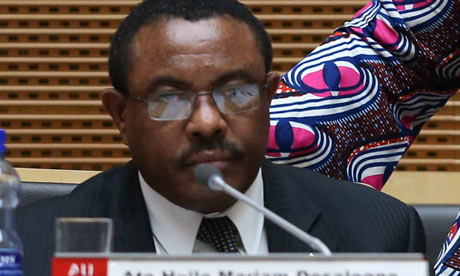By Danielle Gwozdz
Impunity Watch Reporter, Africa
ADDIS ABABA, Ethiopia – Around 10,000 Ethiopians gathered in Ethiopia’s capital, Addis Ababa, on Sunday to protest for the release of jailed journalists and activists.

Some protestors carried banners reading “Justice! Justice! Justice!” or pictures of imprisoned opposition figures. Others chanted: “we call for respect of the constitution.”
Yilekal Getachew, the chairman of the opposition party Semayawi (blue) that organized this protest, stated “We have repeatedly asked the government to release political leaders, journalists and those who asked the government not to intervene in religious affairs.” Further, he said, “If these questions are not resolved and no progress is made in the next three months, we will organize more protests. It is the beginning of our struggle.”
The demonstrators also seek action against unemployment, inflation, and corruption.
The government is able to jail journalists and activists because of the 2009 anti-terrorism law. This law states that anyone caught publishing information that could induce readers into acts of terrorism would be liable to be jailed for terms from 10 to 20 years.
Last year an Ethiopian court sentenced 20 journalists, opposition figures, and others, to jail for conspiring with rebels to destroy the government. In addition, last year 49 Ethiopian journalists were in exile and 72 newspapers had been closed.
However, Communications Minister Bereket denied the protestors’ allegations. He stated that, “There are no political prisoners. There are only people who have been charged with criminal offenses.”
Further, Bereket said, “We don’t have any qualms about the protesters exercising their rights, but when you see the character of the demands, calls to give up the trials and release persons who are behind bars, convicted of criminal offenses, it is both unethical and unacceptable. Also, the government cannot interfere and release people suspected of criminal offenses. We will have to wait until the courts give verdicts.”
Although Ethiopia’s economy is one of the fastest growing economies in Africa, it is often criticized for preventing opposition and the media.
For further information, please see:
BBC News — Ethiopian Protestors Take to Streets — 2 June 2013
The Guardian — Ethiopian Human Rights Protestors Take to Streets in Addis Ababa — 2 June 2013
The Huffington Post — Ethiopia: Thousands Protest Political Repression — 2 June 2013
Reuters — Thousands March for Rights in Rare Ethiopia Protest — 2 June 2013